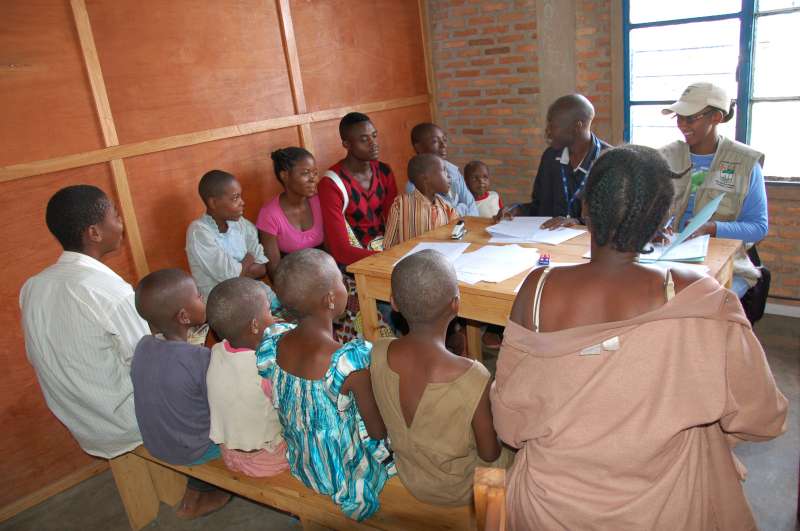Rwanda:
Rwanda sees heavy demand for debut $400 million Eurobond
* Source says order book 7.5 times issue size
* Underlines investor appetite for sub-Saharan African paper
By Tosin Sulaiman;
JOHANNESBURG, April 25 (Reuters) - Rwanda issued a debut $400 million Eurobond in a sale that was heavily oversubscribed, with investor enthusiasm for the fast growing economy trumping misgivings about the modest size of the offering.
The 10-year dollar bond was issued on Thursday with a 6.875 percent yield, a lead banker told Reuters.
That was at the tighter end of Rwanda's final guidance of 6.875-7 percent. One investor source told IFR, a Thomson Reuters news and analysis service, that the order book was $3 billion, or 7.5 times the issue size.
The lead banker, who did not have the precise order book size, said: "It's well oversubscribed as you can imagine."
The issue underlined investor demand for high-yielding but rare sub-Saharan African assets and suggests Eurobonds from other sovereigns planning to come to the market this year, including Kenya and Angola, may be well received.
Investors were also attracted by Rwanda's strongly growing economy, low debt and recent political stability. President Paul Kagame has been praised for leading Rwanda's recovery after the 1994 genocide, although critics say he has an autocratic style.
Economic growth averaged 8.2 percent from 2006 to 2012 and the International Monetary Fund projects growth of 7.6 percent this year. Debt levels are equivalent to 23.3 percent of gross domestic product in 2012. Inflation is in single digits.
But the yield means investors demanded a premium to past African Eurobonds, including Zambia's 2022 bond that is yielding 5.6 percent, and Senegal, whose 2021 bond is currently trading at 5.5 percent.
At less than $500 million, Rwanda's bond was ineligible for JP Morgan's emerging market bond indices that would have automatically triggered demand from index trackers and ensured higher secondary market liquidity.
Some investors were expecting more generous compensation and decided not to participate at the lower yields.
"We just think it's priced to perfection at that level so there's not much room for upside," said Daniel Broby, chief investment officer at Silk Invest.
"Clearly the order book had to be large for them to come in tight on the pricing from their initial indications," he said.
Another investor, who had expected a yield of about 7 percent, said Rwanda had benefited from renewed demand globally for risk this week and a well-run roadshow, in which officials addressed aid cuts.
Donors froze some aid over Rwanda's alleged support for rebels in the Democratic Republic of Congo, which Kigali strongly denies.
"They appear to have done a good job on the roadshow ... explaining the dip in aid flows last year and the steps they have taken to address that," said the investor, who declined to be named.
Foreign aid accounts for about 38 percent of the budget and aid suspensions have widened the current account deficit. (Editing by Edmund Blair, Ron Askew)
Rwanda sees heavy demand for debut $400 million Eurobond
* Source says order book 7.5 times issue size
* Underlines investor appetite for sub-Saharan African paper
By Tosin Sulaiman;
JOHANNESBURG, April 25 (Reuters) - Rwanda issued a debut $400 million Eurobond in a sale that was heavily oversubscribed, with investor enthusiasm for the fast growing economy trumping misgivings about the modest size of the offering.
The 10-year dollar bond was issued on Thursday with a 6.875 percent yield, a lead banker told Reuters.
That was at the tighter end of Rwanda's final guidance of 6.875-7 percent. One investor source told IFR, a Thomson Reuters news and analysis service, that the order book was $3 billion, or 7.5 times the issue size.
The lead banker, who did not have the precise order book size, said: "It's well oversubscribed as you can imagine."
The issue underlined investor demand for high-yielding but rare sub-Saharan African assets and suggests Eurobonds from other sovereigns planning to come to the market this year, including Kenya and Angola, may be well received.
Investors were also attracted by Rwanda's strongly growing economy, low debt and recent political stability. President Paul Kagame has been praised for leading Rwanda's recovery after the 1994 genocide, although critics say he has an autocratic style.
Economic growth averaged 8.2 percent from 2006 to 2012 and the International Monetary Fund projects growth of 7.6 percent this year. Debt levels are equivalent to 23.3 percent of gross domestic product in 2012. Inflation is in single digits.
But the yield means investors demanded a premium to past African Eurobonds, including Zambia's 2022 bond that is yielding 5.6 percent, and Senegal, whose 2021 bond is currently trading at 5.5 percent.
At less than $500 million, Rwanda's bond was ineligible for JP Morgan's emerging market bond indices that would have automatically triggered demand from index trackers and ensured higher secondary market liquidity.
Some investors were expecting more generous compensation and decided not to participate at the lower yields.
"We just think it's priced to perfection at that level so there's not much room for upside," said Daniel Broby, chief investment officer at Silk Invest.
"Clearly the order book had to be large for them to come in tight on the pricing from their initial indications," he said.
Another investor, who had expected a yield of about 7 percent, said Rwanda had benefited from renewed demand globally for risk this week and a well-run roadshow, in which officials addressed aid cuts.
Donors froze some aid over Rwanda's alleged support for rebels in the Democratic Republic of Congo, which Kigali strongly denies.
"They appear to have done a good job on the roadshow ... explaining the dip in aid flows last year and the steps they have taken to address that," said the investor, who declined to be named.
Foreign aid accounts for about 38 percent of the budget and aid suspensions have widened the current account deficit. (Editing by Edmund Blair, Ron Askew)

